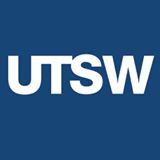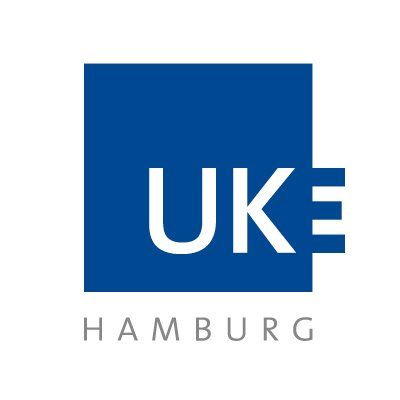预约演示
更新于:2025-05-07
Ceroid Lipofuscinosis, Neuronal, 7
神经元蜡样脂褐质沉积症7
更新于:2025-05-07
基本信息
别名 CEROID LIPOFUSCINOSIS, NEURONAL, 7、CLN7、CLN7 disease + [2] |
简介- |
关联
1
项与 神经元蜡样脂褐质沉积症7 相关的药物靶点- |
作用机制 基因转移 |
在研适应症 |
非在研适应症- |
最高研发阶段临床1期 |
首次获批国家/地区- |
首次获批日期1800-01-20 |
3
项与 神经元蜡样脂褐质沉积症7 相关的临床试验NCT04737460
Phase 1 Intrathecal Lumbar Administration of AAV9/CLN7 for Treatment of CLN7 Disease
This is a phase 1 open-label, single-administration of gene therapy agent AAV9/CLN7, administered intrathecally into the lumbar spinal cord region of pediatric patients with CLN7 Batten disease.
This study consists of a one-time injection of AAV9/CLN7. There are two Cohorts with a low dose and a high dose.
The primary objective for this clinical study is to evaluate safety. The secondary objective is to determine the efficacy of AAV9/CLN7.
The secondary outcome measures include motor, cognition and intelligence assessments.
The exploratory outcome measures include visual impairment assessment, cognitive evaluations, Brain magnetic resonance imaging (MRI), electroencephalogram (EEG), electrocardiogram (ECG) and echocardiogram (ECHO).
This study consists of a one-time injection of AAV9/CLN7. There are two Cohorts with a low dose and a high dose.
The primary objective for this clinical study is to evaluate safety. The secondary objective is to determine the efficacy of AAV9/CLN7.
The secondary outcome measures include motor, cognition and intelligence assessments.
The exploratory outcome measures include visual impairment assessment, cognitive evaluations, Brain magnetic resonance imaging (MRI), electroencephalogram (EEG), electrocardiogram (ECG) and echocardiogram (ECHO).
开始日期2021-05-04 |
NCT04613089
Natural History and Long Term Clinical Assessments of All Forms of Neuronal Ceroid Lipofuscinoses - Capturing Key Symptoms and Disease Progression as Part of the Independent, International NCL DEM-CHILD Patient Database
This is an observational study that aims at assessing the natural history of NCL diseases as part of the international DEM-CHILD Database.
Patient data are collected from medical records, patient questionnaires and routine follow up clinical examinations with focus on assessing progression in key areas of disease such as motor, language, cognition, seizures, vision, and behavior.
A local biorepository of samples from genetically defined NCL patients will be established as well as a virtual biorepository within the DEM-CHILD DB to be able to easily localize international availability of patient samples.
Patient data are collected from medical records, patient questionnaires and routine follow up clinical examinations with focus on assessing progression in key areas of disease such as motor, language, cognition, seizures, vision, and behavior.
A local biorepository of samples from genetically defined NCL patients will be established as well as a virtual biorepository within the DEM-CHILD DB to be able to easily localize international availability of patient samples.
开始日期2020-04-08 |
NCT01873924
Clinical and Neuropsychological Investigations in Batten Disease
This study aims to assess the natural history of Batten disease (Neuronal Ceroid Lipofuscinosis) by obtaining information about the motor, behavioral, and functional capabilities of individuals with Batten disease. This study will also refine and validate the Unified Batten Disease Rating Scale (UBDRS) as a clinical rating instrument for Batten disease.
开始日期2004-08-01 |
申办/合作机构 |
100 项与 神经元蜡样脂褐质沉积症7 相关的临床结果
登录后查看更多信息
100 项与 神经元蜡样脂褐质沉积症7 相关的转化医学
登录后查看更多信息
0 项与 神经元蜡样脂褐质沉积症7 相关的专利(医药)
登录后查看更多信息
36
项与 神经元蜡样脂褐质沉积症7 相关的文献(医药)2024-11-01·Clinical Case Reports
Cone‐Rod Dystrophy and Progressive Visual Loss as the First Manifestation of Neuronal Ceroid Lipofuscinosis Type 7: A Case Report
Article
作者: Hosseini, Seyedeh Maryam ; Nejad Shahrokh Abadi, Reza ; Hashemi, Narges ; Babaei, Meisam ; Eghbal, Fatemeh
2024-10-01·Heliyon
Spatial distribution and clustering of contagious caprine pleuropneumonia in goats of Amhara region, Ethiopia
Article
作者: Molla, Wassie ; Fentie, Tsegaw ; Jemberu, Wudu Temesgen ; Mekonnen, Sefinew Alemu ; Zegeye, Asres
2024-08-01·Molecular Genetics & Genomic Medicine
Maculopathy and adult‐onset ataxia in patients with biallelic MFSD8 variants
Article
作者: Sheth, Jayesh ; Kjellström, Ulrika ; Dobloug, Sigurd ; Puschmann, Andreas ; Mole, Sara E. ; Anderson, Glenn ; Gardner, Emily
分析
对领域进行一次全面的分析。
登录
或

生物医药百科问答
全新生物医药AI Agent 覆盖科研全链路,让突破性发现快人一步
立即开始免费试用!
智慧芽新药情报库是智慧芽专为生命科学人士构建的基于AI的创新药情报平台,助您全方位提升您的研发与决策效率。
立即开始数据试用!
智慧芽新药库数据也通过智慧芽数据服务平台,以API或者数据包形式对外开放,助您更加充分利用智慧芽新药情报信息。
生物序列数据库
生物药研发创新
免费使用
化学结构数据库
小分子化药研发创新
免费使用


